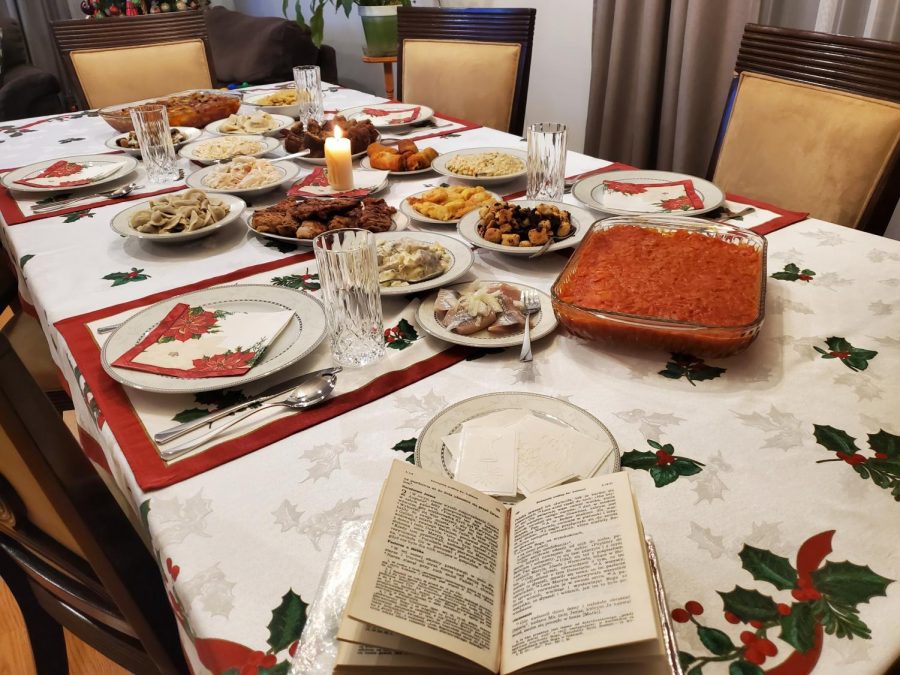Wigilia: A Polish Tradition
Jan 11, 2021
Everyone has different Christmas traditions based on their culture and even religion. One such tradition is known as Wigilia, celebrated in Poland and Polish communities throughout the globe. Wigilia is celebrated on Dec. 24. and consists of a family gathering to eat a vigil supper consisting of at least 12 different dishes, known as ‘potrawy.’ The 12 dishes correlate with the 12 apostles of Jesus Christ. It is commonly said that the amount of dishes you do not try is the number of good things that you will miss out on in the coming year.
The actual feast itself does not begin until the First Star is seen in the sky, so usually late at night. Before eating, a passage from the Bible is read, and then everyone shares ‘oplatki’ and tells each other good wishes for the coming year. Then there is soup, usually borscht or mushroom stew, and then the main courses. There is never any meat involved, only fish and other such foods. There are also desserts, a popular one being ‘Lamance z makiem,’ or poppy seed cakes. They are a hard cookie-type food served with a poppy seed paste. The paste is very sweet and is balanced out by the cookie perfectly.
After the supper is over, children will often open their presents and hand out any presents given to the adults in the room. In Polish, instead of Santa Claus, we say ‘Swiety Mikolaj,’ directly translating to Saint Nicholas. We also have a story for how Saint Nicholas became a Saint and how this correlates to getting presents. After opening presents, there is a ‘Pasterka,’ also known in English as the Shepherds Mass. This is held at midnight.
There are many other common traditions during this time. One such tradition is to put a handful of hay under the tablecloth to symbolize Jesus’s birth in a manger. When children or adults pull some out, it is said that the color symbolizes if they will have good or bad luck for the next year. Green indicates wealth or possibly a marriage, while black foretells bad luck for the year. Another states that at midnight, animals are given the gift of human speech. Another common tradition is to set an extra space on the table for an ‘uninvited guest’ in a celebration of hospitality.




